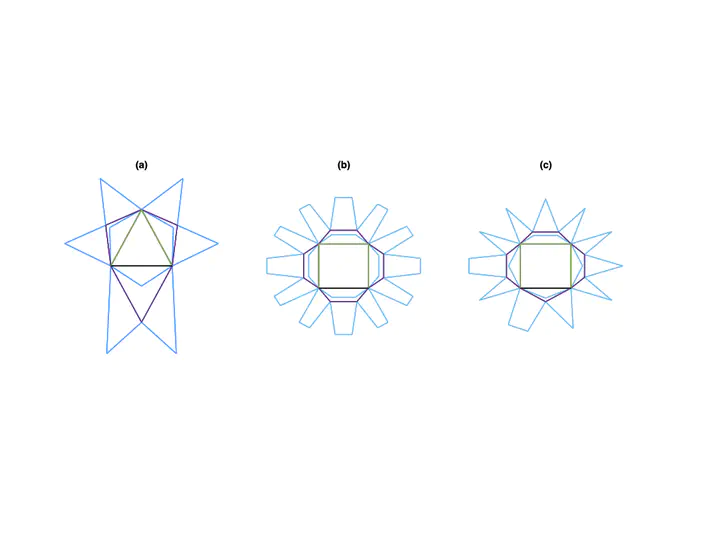Renormalization group theory of percolation on pseudofractal simplicial and cell complexes

Abstract
Simplicial complexes are gaining increasing scientific attention as they are generalized network structures that can represent the many-body interactions existing in complex systems raging from the brain to high-order social networks. Simplicial complexes are formed by simplicies, such as nodes, links, triangles and so on. Cell complexes further extend these generalized network structures as they are formed by regular polytopes such as squares, pentagons etc. Pseudo-fractal simplicial and cell complexes are a major example of generalized network structures and they can be obtained by gluing 2-dimensional m-polygons (m=2 triangles, m=4 squares, m=5 pentagons, etc.) along their links according to a simple iterative rule. Here we investigate the interplay between the topology of pseudo-fractal simplicial and cell complexes and their dynamics by characterizing the critical properties of link percolation defined on these structures. By using the renormalization group we show that the pseudo-fractal simplicial and cell complexes have a continuous percolation threshold at pc=0. When the pseudo-fractal structure is formed by polygons of the same size m, the transition is characterized by an exponential suppression of the order parameter P∞ that depends on the number of sides m of the polygons forming the pseudo-fractal cell complex, i.e., P∝pexp(−α/pm−2). Here these results are also generalized to random pseudo-fractal cell-complexes formed by polygons of different number of sides m.